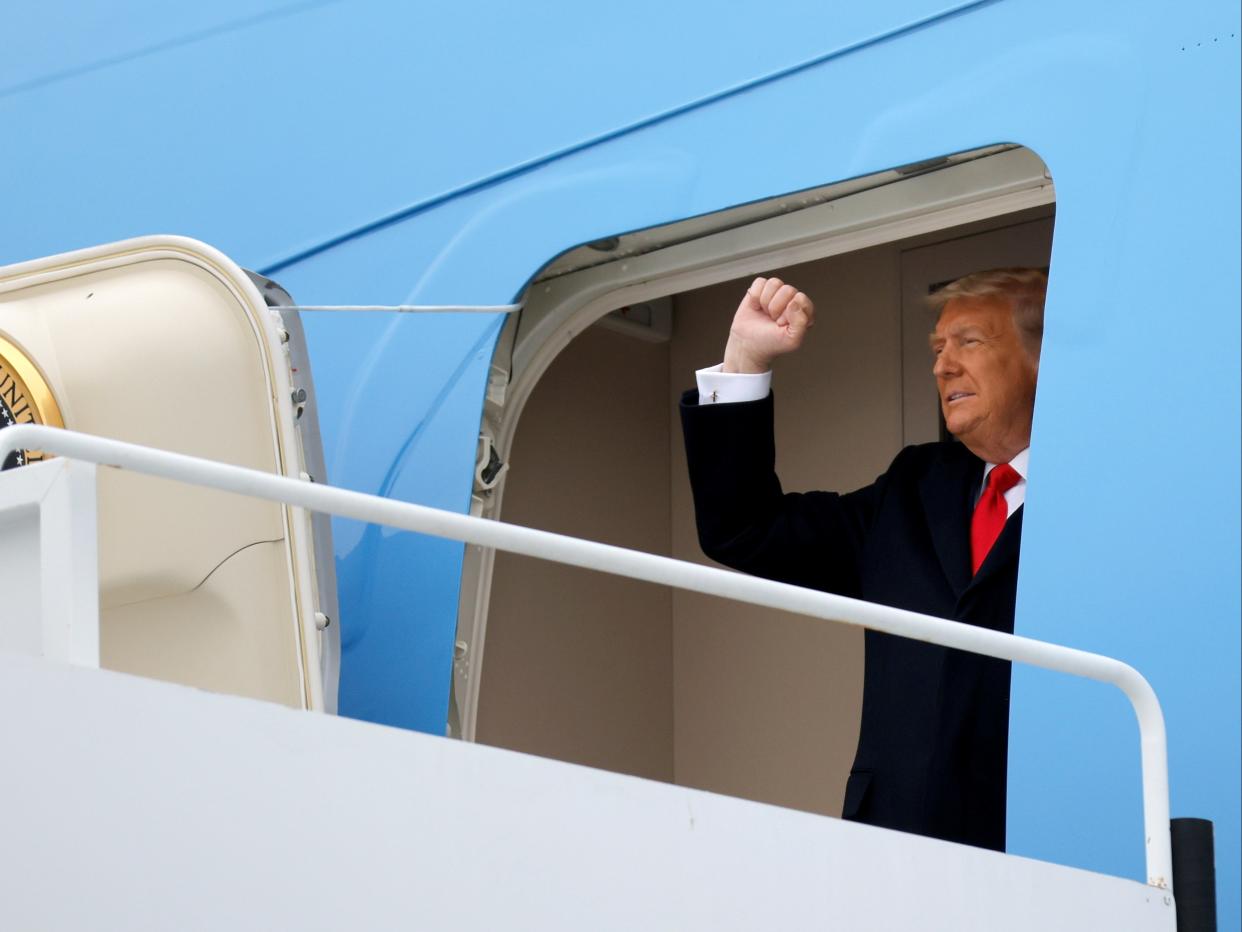In spite of everything, there are three things we really should thank Trump for

When Senator Lindsey Graham spoke in the Senate in the aftermath of the Capitol riot, he described President Trump as a “consequential president.” It is hard to disagree with this assessment. Whilst views of the 45th president range from savior to antichrist, his term leaves a number of positive consequences which should be examined to reinforce democracy against future threats.
First, the 2020 election saw the largest total voter turnout in the history of the United States and the first time that more than 140 million people voted in an election. When measured as a percentage of the voting-eligible population, the number of voters who took to the polls in 2020 was the highest in 120 years at 66.7 percent. This wave of turnout was aided by early voting, which, before polling day, saw 24 million vote who hadn’t in 2016 and 8 million vote for the first time. The new votes were roughly shared: Trump won 10.1 million while Biden won 12.6 million. Evidently, citizens across the political spectrum voted as if they felt that their lives depended on it.
The more individuals who feel enfranchised, the better it is for a truly representative democracy. Suffice to say that such turnout would most likely not have occurred had Trump not brazenly inserted himself into so many people's daily lives on TV, social media, and newspapers over the last four years, speaking in a language that many felt they could understand as opposed to that of “establishment” politicians. Regardless of who they voted for, they voted.
Second, President Trump’s sustained four-year attack on multilateral cooperation will hopefully spur these institutions to modernise and avoid repeating past mistakes. Indeed, there is evidence this is already happening.
Trump captured the feeling that multilateralism strayed too far from the very individuals it was conceptualised to serve, and became more about “elites” and self-aggrandisement of one’s own regime. When Pew Research recently polled views about the United Nations, the least common responses were that the UN cares about ordinary people and that it can deal effectively with international problems: clear evidence of a perception of distance. That Trump still obtained 74 million votes in spite of his attitudes towards multilateralism should demonstrate that reforms of structure and communications will be necessary.
Trump’s insurrection of multilateralism has provoked this positive reaction. Institutions like the WTO are now prioritising strengthening and reform on issues such as e-commerce. Economic bodies including the IMF and the OECD are advising against a return to the austerity policies of the early 2010s which some link to the rise of President Trump and populism.
Perhaps President Trump possesses an almost Trotskyist view that fixed institutions have an incredibly strong drag effect, and thus permanent revolution is necessary to ensure desired outcomes. However, it is more likely that he was an opportunist that valued isolation over cooperation and leverage over engagement. Multilateralism emerges shaken but unbowed, and hopefully with a brighter future.
Finally, President Trump’s tenure has focused attention upon previously under-examined intersections between the private and public spheres. If left unchecked, such issues could pose a more serious threat to future global democracy than any one individual could.
The internet has affected our democratic process at a faster rate than regulation could keep pace. Ballot stuffing has been displaced by “troll farms” as the primary means of election interference. Groups of state and non-state actors use the miracle of global connectivity to sow discord online before, during, and after elections on an industrial scale. The issue of election interference leads naturally to the wider question of the regulation of “Big Tech.” The ability with which President Trump was able to succinctly and rapidly communicate with his followers, and the corresponding ease with which social media companies restricted this after years of substantial monetisation, must prompt deep consideration of questions like: What does a democratic internet actually look like? To what extent should tech companies bear editorial responsibility? How big is a company that is too big?
Ease of capital flows, and financial secrecy have made democratic institutions vulnerable to foreign influence, so argued a 2018 essay from President Biden. Seeing a candidate with such extensive business interests abroad as Trump propelled to the highest office should be worrying. Again, Trump is not a cause of this issue but a symptom. His term should show us that Super PACs and lax anti-money laundering laws can facilitate kleptocracy which needs to be challenged.
Democracy was stress-tested under Trump, but it survived.
Record numbers voted, multilateralism will be strengthened, and key democratic gaps will be examined. Politicians should now avoid the same tired conversations about “freedom and democracy” and focus on substantive systemic improvement. We should be glad President Trump is gone, but grateful for the deficits that his tenure revealed to us.
Philip Crowe writes freelance on foreign affairs and has previously featured in The Diplomat and The House magazines

